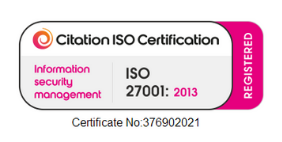Cloud Telephony Vs VoIP
What’s the difference between cloud telephony and VoIP? Many assume that they’re one and the same, and although it can be tricky to understand, there are vital differences all UK businesses must be aware of.
In the simplest possible terms, VoIP, known as Voice over Internet Protocol, is simply the transmission of phone calls over the internet instead of using a traditional copper phone line. Cloud telephony also operates via the internet, in the cloud, and whilst it incorporates VoIP technology it also offers other features such as video call, instant messaging and file sharing.
Here’s what you must know about each, and their differences.
What is Cloud Telephony?
Cloud telephony, also known as a cloud-based phone system, is a modern business communications method that relies on cloud computing supporting businesses to communicate in a variety of ways over the internet.
Cloud phone systems don’t need any dedicated hardware, like an old, traditional telephone line which require handsets and running copper wire through your building. Instead, you can use your phone, tablet, or laptop to make calls and communicate to anyone in the world. Everything happens in the cloud, with all processing and data moving through it.
What is VoIP?
VoIP is the technology used to make voice calls through your internet connection. Everything you say is converted into digital data packets and sent over the internet to whoever you’re calling. You can use your computer or a dedicated handset to call. When scaling your business, it does away with worrying about installing multiple phone lines.
One of the biggest reasons UK businesses use VoIP is to make international calls, as it’s much cheaper than traditional phone lines. Although VoIP works equally well in and outside the UK, nearly 70% of businesses were still using phone lines in 2021.
The main differences between cloud telephony and VoIP
Looking at the definitions alone can make you think that cloud telephony and VoIP are essentially the same product, but they’re not. Here’s a rundown of some of the main points and how the two differ:
Infrastructure and Hardware – Cloud telephony operates exclusively in the cloud with no physical hardware required. VoIP utilises the internet but may sometimes need physical hardware dependant upon your requirements.
Management – Cloud telephony outsources the whole thing to a third-party service provider, whereas the management and any maintenance for a VoIP system is usually down to the business using it for on-site hardware issues.
Scalability/Flexibility – Regarding scalability and flexibility, cloud telephony wins here. You can scale up or down without changing any hardware, it’s simply a case of adding or removing users to the software. In contrast, VoIP is limited by the hardware capacity of what you’ve got in your business.
Integrations and Features – If you value customisation and more communication features than just voice calls above all else, cloud telephony has everything you might need. Cloud telephony also offers numerous integrations with your tech stack.
Billing – Most cloud telephony packages are based on a subscription model for the number of users your require. In contrast, VoIP is a tad more complex because it depends on the service provider, type of deployment, and the scale you’re using it at.
The main difference is in the actual technology use, with cloud telephony offering businesses a full communication system with functionality across different channels. Whereas, VoIP is just the use of voice calls across the internet.

Benefits of cloud telephony Vs benefits of VoIP
Comparing the two means examining their pros and cons. There’s no one solution for every business. Despite how great each one sounds, they also come with their own challenges that every firm should familiarise themselves with.
Here’s a rundown of the pros and cons of each one:
Pros of cloud telephony
· Simple setup for instant calls.
· Advanced features to enhance call functionality.
· Integrate with your most commonly used tools.
· No hardware and minimal maintenance costs.
Cons of cloud telephony
· Reliant on strong internet connectivity.
· Consider the investment for subscriptions when scaling.
Pros of VoIP
· Save money on international calls.
· Remote-friendly solutions.
Cons of VoIP
· Reliable internet connection needed.
· Fewer features and integrations.
· Software provider dependent.
· Potential security threats.

Is cloud telephony or VoIP better for my business?
The choice of VoIP Vs cloud telephony depends on the needs of your business. It’s about asking yourself some key questions and then using your answers to guide you through the process. Here’s a few things to consider:
How big is your team?
The first step is assessing your workforce and your expected workforce in the years ahead. UK small businesses with fewer than ten employees can probably get by with a basic VoIP setup. On the other hand, if you’re growing fast, cloud telephony is the better option because it’s more scalable and offers more functionality for business communication and collaboration.
Where are your team working?
Work habits are changing. Alongside remote working, many UK companies operate within hybrid environments. If you’re a fully remote company, or you’re more hybrid than in-office, cloud telephony is the more flexible option because of its lack of hardware. However, VoIP may be the practical option if you’re all just office based.
What’s your budget?
Budget matters. Although cloud telephony is more straightforward to budget for and you don’t need to worry about any hardware, the investment can quickly grow as your business scales too. VoIP is more expensive as an initial investment, but since you’re controlling your own infrastructure, you may enjoy lower monthly costs.
Do advanced features matter to you?
Cloud telephony is more feature-rich and can do much more than VoIP can because its advanced capabilities are limited, even when you start adding third-party add-ons.
For example, cloud telephony can give you everything from auto attendants to CRM integration and in-depth call analytics.
How important is reliability?
No matter what you choose, both options rely on the internet to function. Neither option will work if you don’t have a reliable internet connection. Generally, if reliability is a crucial concern, cloud telephony offers better failover options. For example, you can route calls to your mobile phone if there’s an outage.
Businesses that cannot afford downtime should probably investigate cloud telephony. Although this will not be an issue for most companies, rural-based firms should consider it a higher priority.
We understand that your choice matters, and with so many cloud telephony systems on the market it can be difficult to navigate what the best solution is for you. With the ISDN to digital switchover closing in, migrating to a new business communications system is no longer a nice to have, it’s essential – and that’s where Matrix247 comes in.
Let our team support you through the migration process to ensure your business is maximising your investment, driving collaboration and productivity across your organisation. To learn more, contact Matrix247 today.




